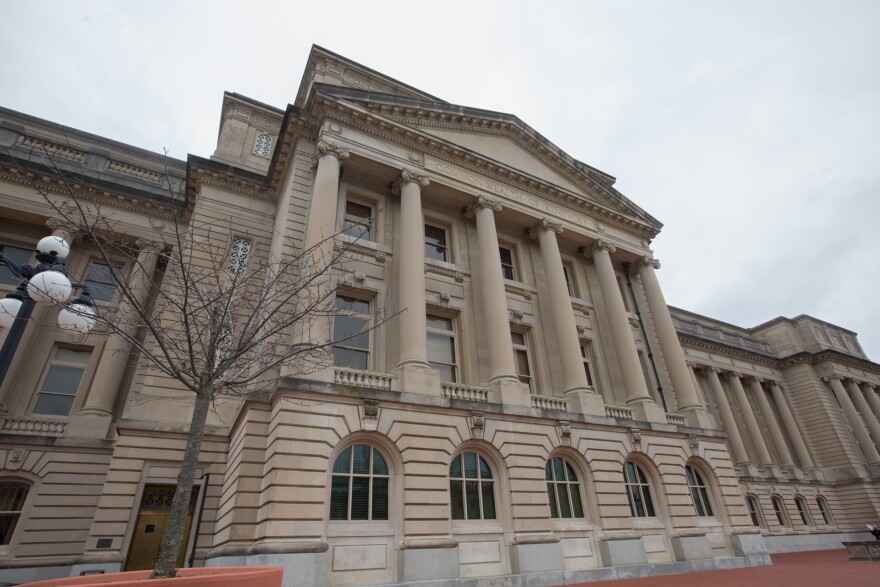Open government advocates are raising the alarms about a proposal they say will “eviscerate” Kentucky’s open records law.
House Bill 509 has support from powerful Republican state lawmakers and would redefine what constitutes a public record. Opponents say it would shield a broad swath of government records from public view, including emails between officials, police records and government personnel records. Those kinds of documents have been available to the public since the landmark Kentucky Open Records Act of 1976.
“In one fell swoop, HB 509 would eviscerate that legacy and leave Kentucky’s citizens largely unable to access records created by the public officials and employees who serve them,” the Kentucky Press Association wrote in an open letter.
“This bill can only be described as an all-out assault on transparency, and any person that cares about the power of the people to know what their government is up to must oppose this bill.”
Sponsors of the measure did not immediately respond to a request for comment from LPM News. But co-sponsor Republican Rep. John Hodgson of Fisherville told the Kentucky Lantern the measure would protect the privacy of government employees. He also said it changes nothing about what is currently disclosable.
Kentucky Open Government Coalition Co-Director Amye Bensenhaver said that’s untrue.
“So much will be lost,” Bensenhaver said. “And for the sponsor to suggest that nothing will change … is simply self-deception or a falsehood.”
“If this really changes nothing, then why do you want it?” media lawyer Mike Abate said. “It's a massive change.”
Abate recently litigated an open records dispute before the Kentucky Court of Appeals, and advises and represents LPM in its disputes over access to public information.
Abate and Bensenhaver told LPM the new proposed definition of a public record would allow public agencies to withhold a broad array of records currently available to the public, including police body camera footage, emails and texts between officials, consultant reports paid for by taxpayers, disciplinary records for teachers and police, and rejected bids for government contracts.
These are the kinds of records LPM and other news outlets have obtained to produce numerous reports, including a 2023 investigation into missteps by school officials and police leading up to death of JCPS student Tyree Smith, a 2020 look into police actions leading up to the death of Breonna Taylor, and a 2022 investigation revealing South Shore city officials failed to tell residents about toxic levels of PFAS in their drinking water.
In many cases, the measure would allow agencies to neither confirm or deny such records even exist. It also shields communications sent over personal devices, even if they pertain to the public’s business.
“It's going to lead to hiding things, it's going to lead to secrecy,” Abate said. “You could have a public official solicit a bribe from a government contractor, you know, over Gmail or text, and that would never have to be disclosed.”
Bensenhaver said the proposal is part of a nationwide “attack” on states’ open records laws, but that HB 509 would have the most “dramatic” impact of any measure she’s seen.
“Lawmakers need to listen to their constituents,” Bensenhaver said. “They need to understand that constituents — conservative, liberal, Democrat, Republican, you know, right-leaning, left-leaning — all support transparency. There is not an individual in the public that you are likely to find that is an opponent of open government.”
The measure has support from Republican House Speaker David Osborne of Prospect, and House Majority Whip Jason Nemes of Middletown, also a Republican.
State government and politics reporting is supported in part by the Corporation for Public Broadcasting.






